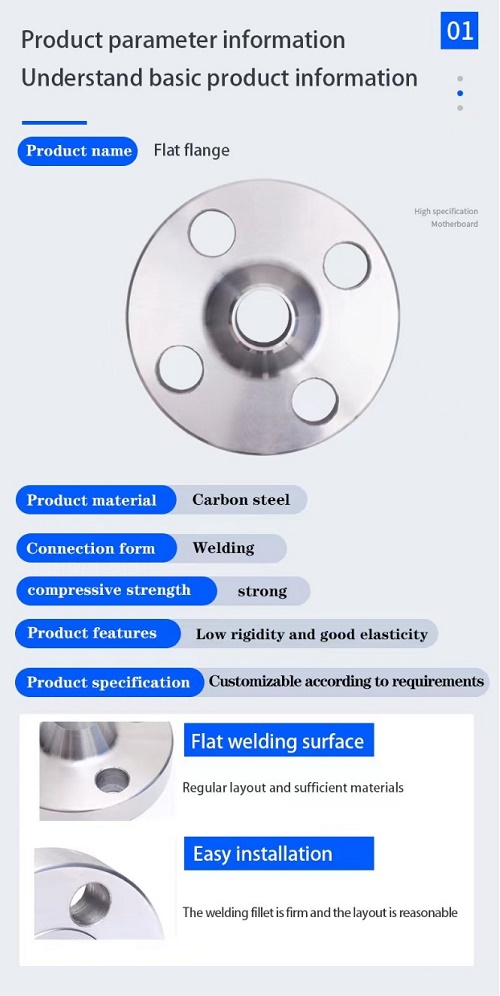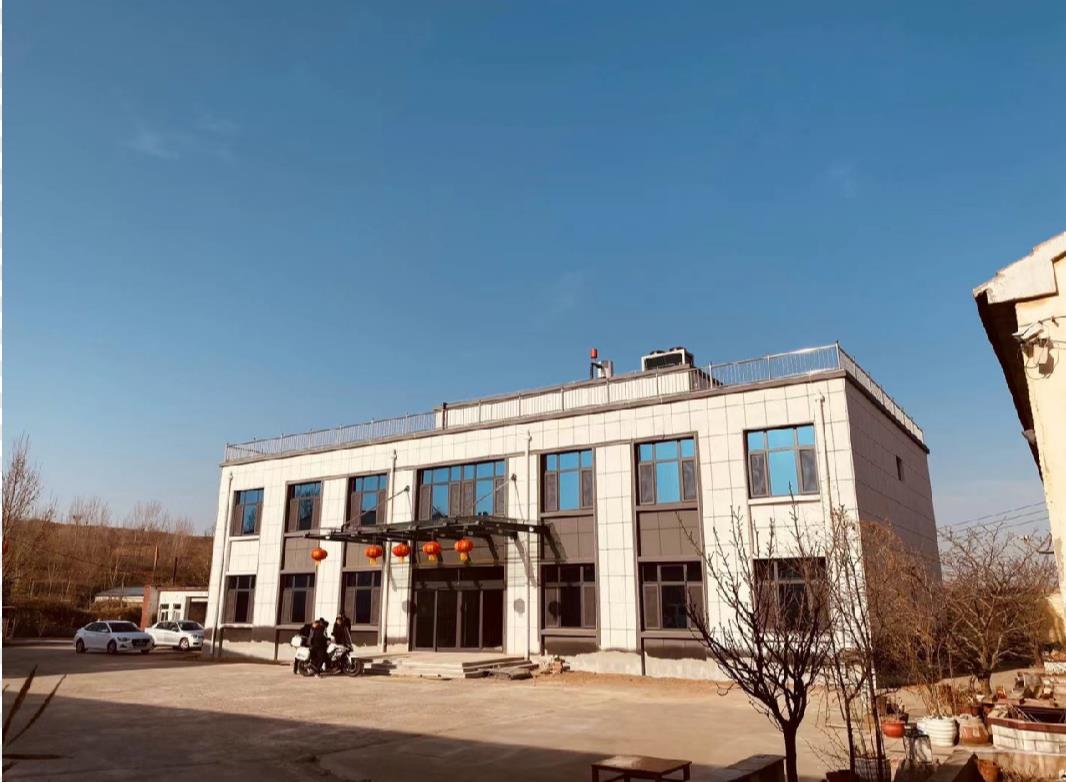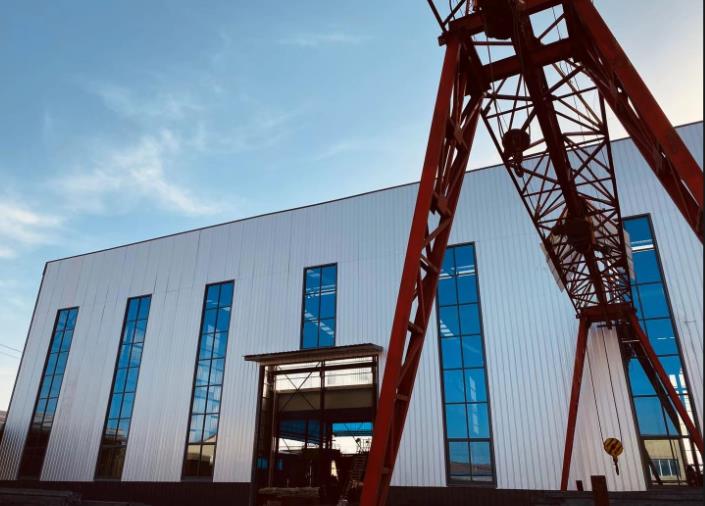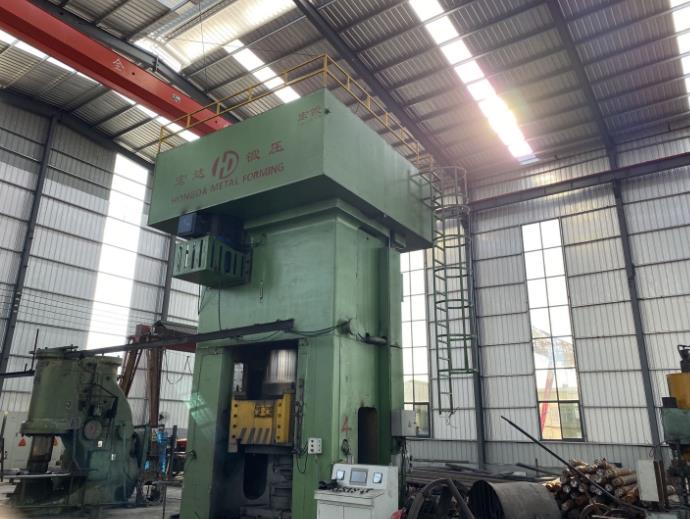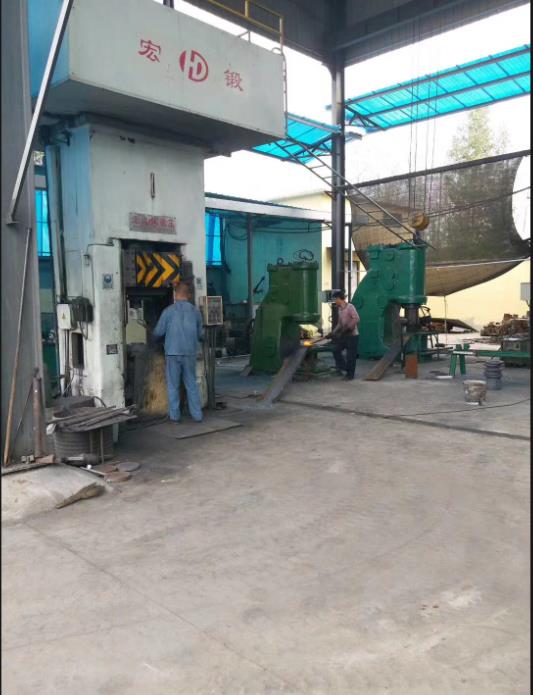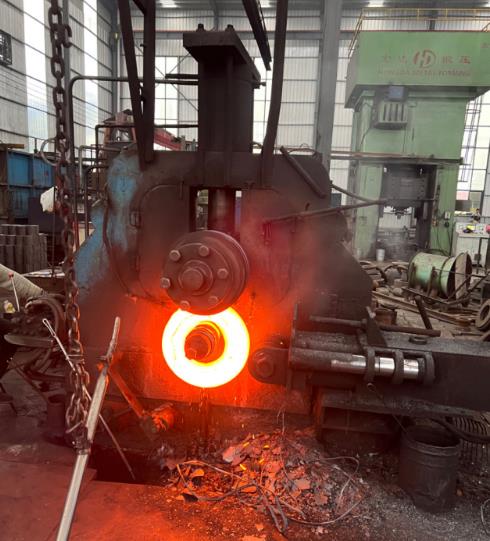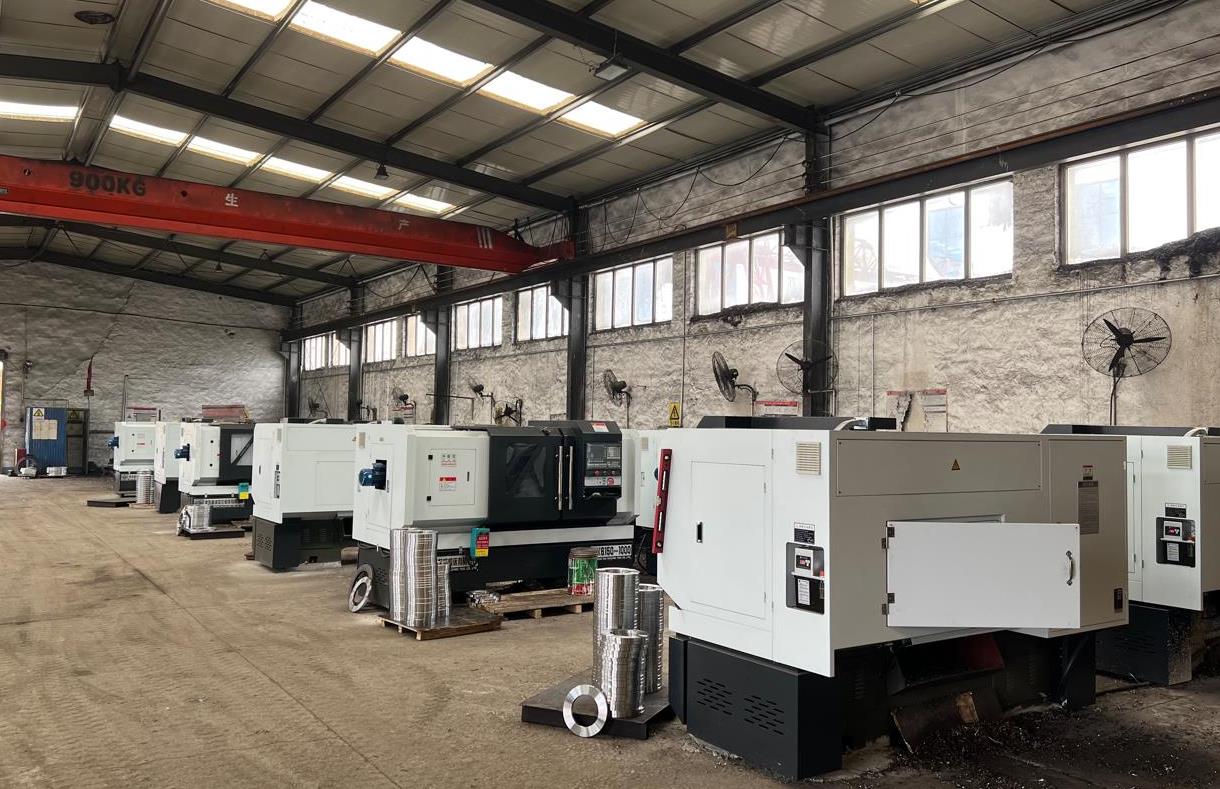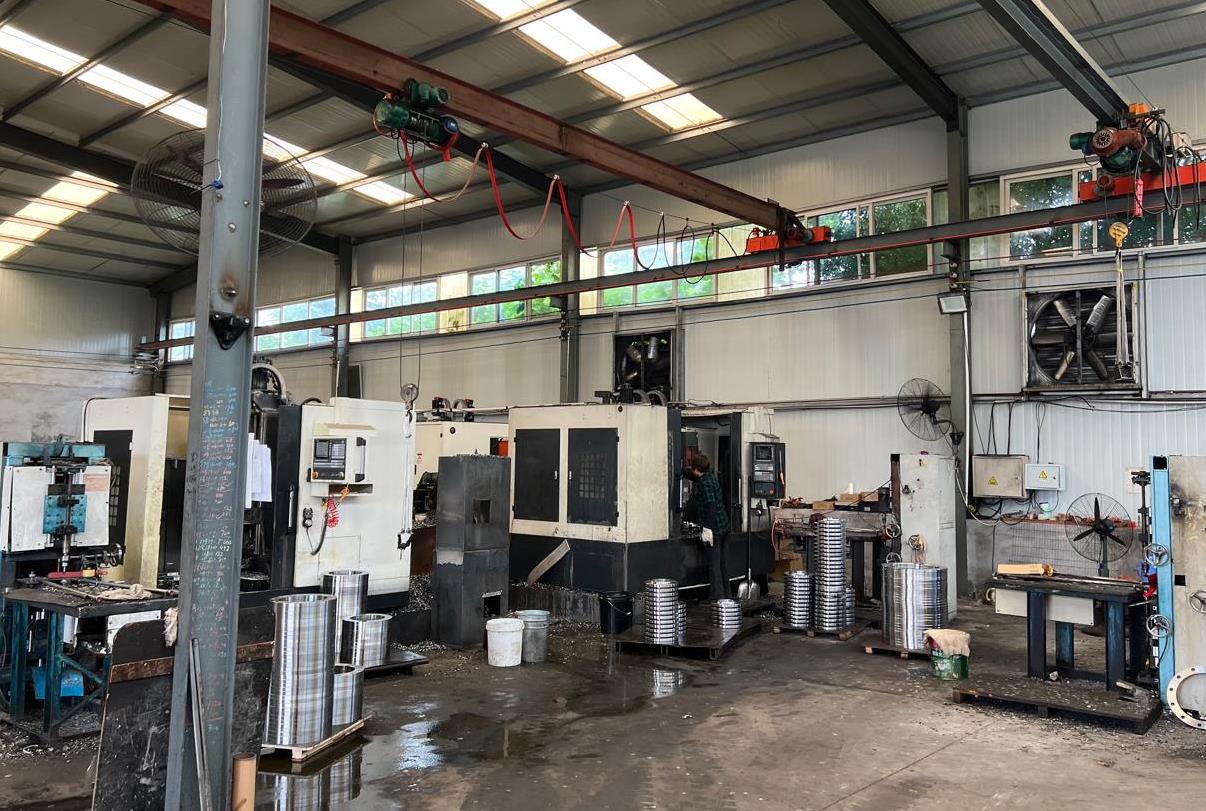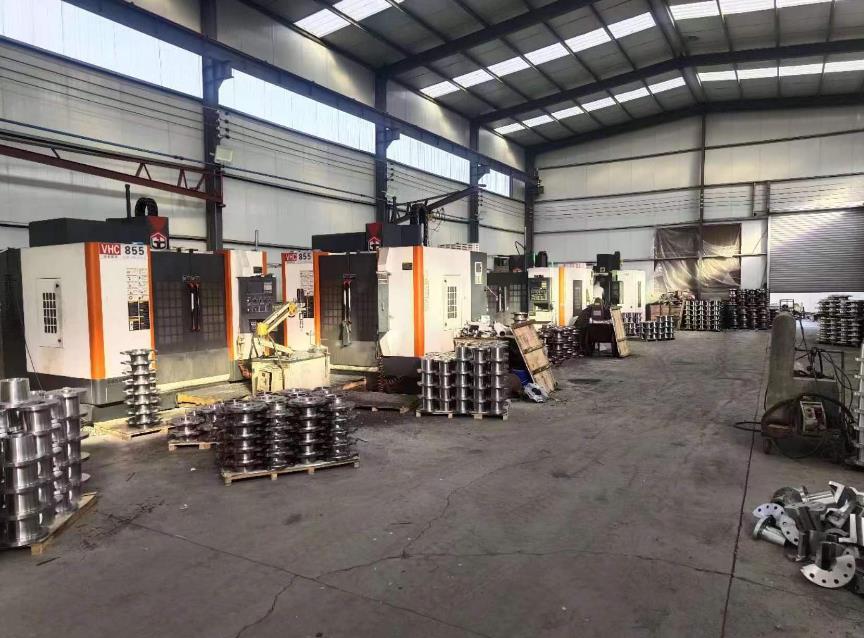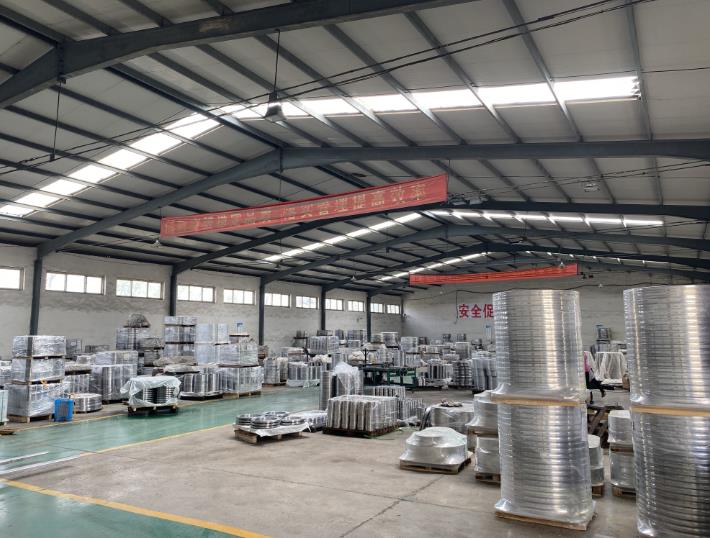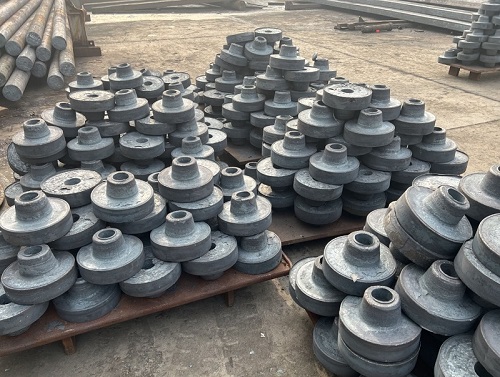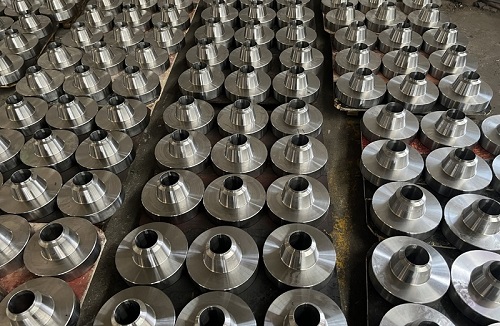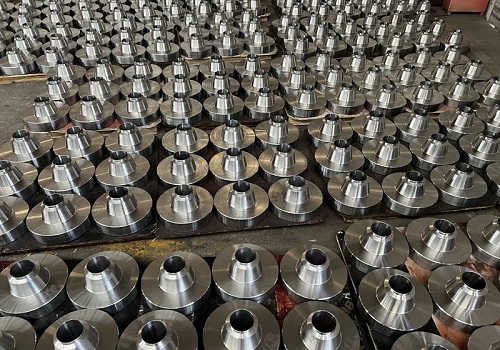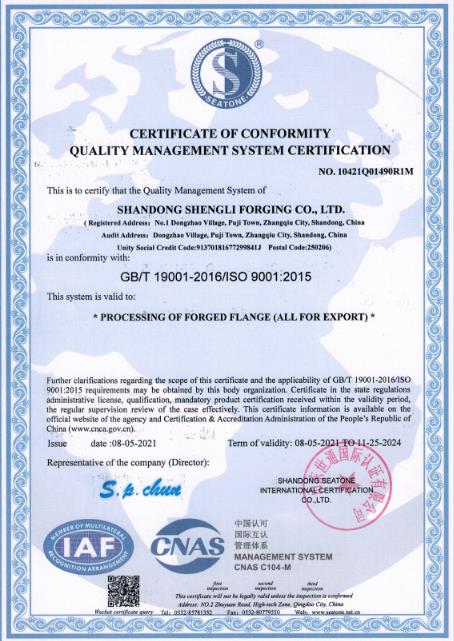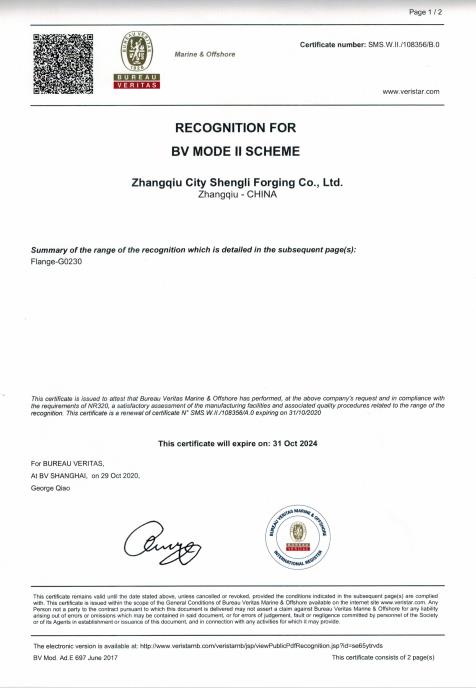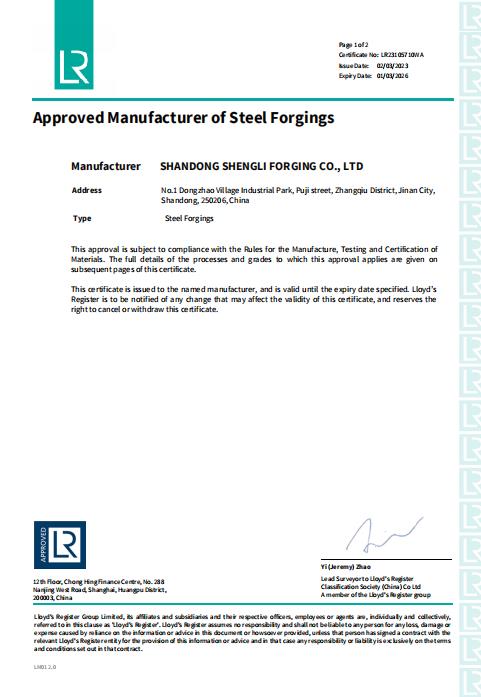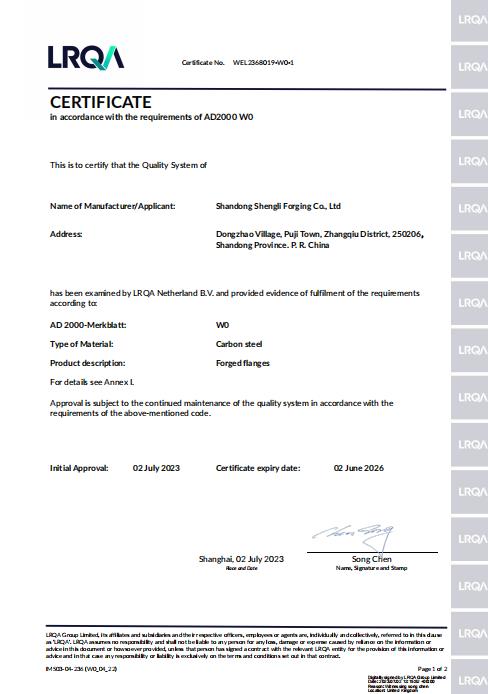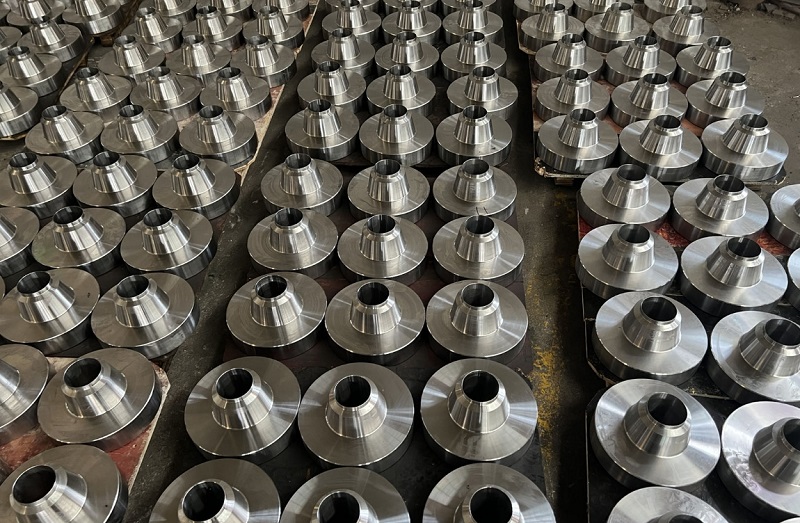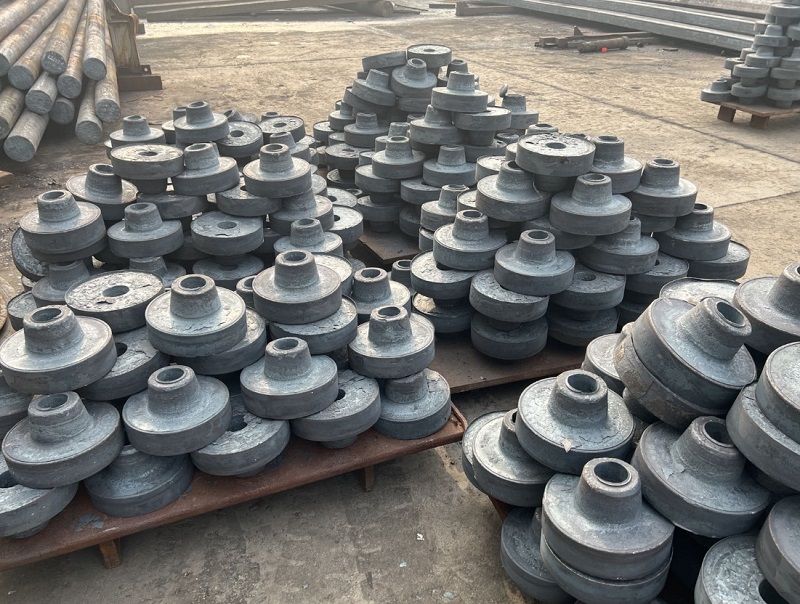Weld Neck Flange
High strength: The structure of forged flanges is very tight, so the strength is very high. This enables forged flanges to withstand high pressure and impact loads, ensuring the stability of pipeline operation.
Good sealing performance: The surface flatness of the forged flange is very high, and the area in contact with the matching sealing surface is also large, so its sealing performance is more reliable in work.
Strong stability: The materials used in the production process of forged flanges are all from high quality; The large manufacturing volume and accumulation of quantity also have certain advantages compared to other small-scale domestic manufacturers, which can ensure the stability of forged flanges.
Forged flange is the product with the best mechanical properties among flange products. Its raw material is generally pipe blank, which is then cut and continuously hammered to eliminate defects such as segregation and porosity in the steel ingot. The price and mechanical properties are one level higher than ordinary cast flanges. A flange is a component that connects pipes, pipes, and valves to the end of the pipe; It is also used as a flange on the inlet and outlet of equipment, which is a component for connecting pipes to each other between two devices, connected to the pipe end. It is an accessory product of pipelines. The main materials for forged flanges include carbon steel, alloy steel, and stainless steel. The main standards include national standards, electrical standards, American standards, German standards, Japanese standards, etc. The main anti-corrosion treatments include oil coating and galvanizing. Forged flanges have good pressure and temperature resistance, and are generally suitable for high-pressure and high-temperature working environments.

